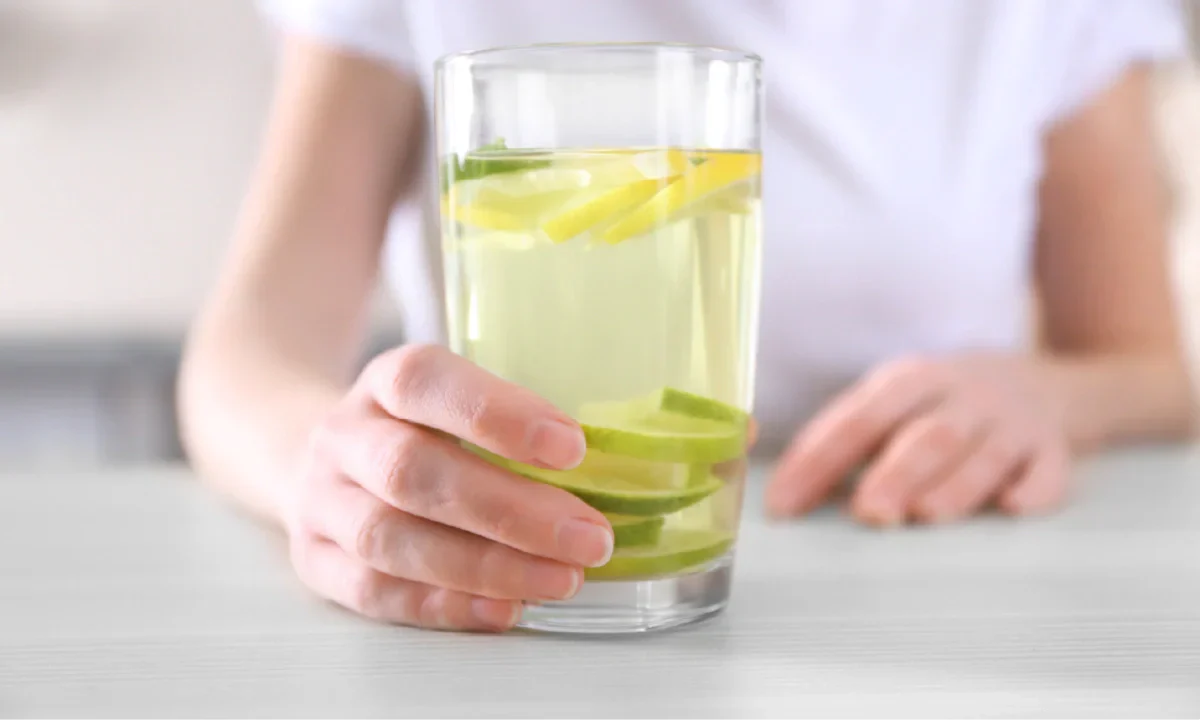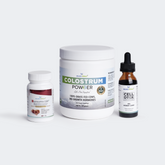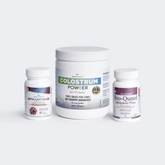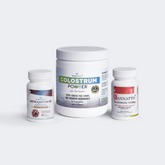Detox Drinks: 10 Homemade Recipes That May Help Improve Health
Estimated Reading Time: 8 minutes
|Detox drinks are a simple way to add something fresh to your daily routine. Made with fruits, herbs, and citrus, they help you stay hydrated and clear out what the body doesn’t need.
You’ll find these drinks in different forms - infused water, herbal teas, juices, and smoothies. Each one offers its own mix of flavor and nutrients. When added to a balanced diet, they can support:
-
Staying hydrated so your body runs smoothly
-
Easing digestion with ingredients that are gentle or fiber-rich
-
Daily nutrition through natural sources of vitamins and minerals
-
A bit of antioxidant support from fruits and herbs
Up next, you’ll find 10 easy detox drink recipes made with real, everyday ingredients. No complicated steps, no equipment, just simple blends that fit into your day and may help the body stay balanced and refreshed.
Detox drinks have become a refreshing way to support a balanced lifestyle. Made with natural ingredients like fruits, herbs, and citrus, these drinks may help support hydration, digestive comfort, and the body’s natural elimination pathways.
Easy Detox Drinks to Refresh and Rebalance
From infused waters to nutrient-rich blends, these simple recipes are a gentle way to support daily hydration, digestion, and your body’s natural cleansing process.
1. Lemon Ginger Hydration Boost
Recipe:
Add the juice of 2 or 3 lemons to a liter of filtered water. Grate a small amount of fresh ginger and stir it in. Add a pinch of pink Himalayan salt. Drink it cold or at room temperature.
Why it helps:
Lemon gives you vitamin C. Ginger can settle the stomach. The salt helps replace minerals your body loses through sweat.
Research note:
According to a 2015 review in the Journal of Traditional and Complementary Medicine, a mix of lemon, ginger, and salt may support digestion by helping enzyme activity and gut function.
2. Watermelon Citrus Hydration Infusion
Recipe:
In a large pitcher, add 4 cups of watermelon chunks, the juice of one orange and one lemon, and half a cucumber sliced thin. Pour in 2 liters of filtered water. Let it sit in the fridge for a few hours so the flavors can blend. You can add a slice of citrus or cucumber to each glass before serving.
Why it helps:
Watermelon is about 92% water and contains vitamins like C, A, and B6. Citrus adds flavor and antioxidants. Cucumber gives the drink a cool, clean taste and adds small amounts of minerals that help with hydration.
Research note:
A 2022 review in Nutrients by Figueroa and colleagues noted that watermelon contains L-citrulline, an amino acid that may support circulation by helping the body make nitric oxide.
3. Lemon Mint Water
Recipe:
Put a few lemon slices and some fresh mint leaves into a pitcher of filtered water. Let it sit in the fridge for 1 to 2 hours. If you want more flavor, press the mint leaves a little before adding them.
Why it helps:
Lemon has vitamin C and antioxidants. Mint is often used to calm the stomach and ease digestion.
Research note:
A 2022 review in Molecules said that herbs like mint have been used to support gut comfort and may help with mild bloating.
4. Grapefruit, Mint, and Rosemary Water
Recipe:
Slice a grapefruit and add it to a gallon of filtered water. Drop in a few sprigs of rosemary and a handful of mint leaves. Let it chill for a few hours or overnight. Serve cold. If you have fresh herbs, use those for better flavor.
Why it helps:
Grapefruit has vitamin C and some antioxidants. Mint and rosemary have been used to help with digestion and may have a calming effect.
Research note:
Some early studies mention that the oils in citrus, mint, and rosemary may support general wellness when added to food or drinks.
5. Cucumber Mint Cooling Infusion
Recipe:
Slice two cucumbers thin and add them to a jug of filtered water. Add a handful of mint leaves and one sliced lemon. Chill in the fridge for 30 to 60 minutes before drinking.
Why it helps:
Cucumber is made mostly of water and also gives you small amounts of potassium and magnesium. Mint adds a cooling taste and has been used to help with digestion. Lemon brings in natural vitamin C and a bit of brightness.
Research note:
A 2020 review by Akhtar and colleagues found that cucumbers are over 95% water and contain electrolytes like potassium and magnesium. These help with hydration and may support how the body absorbs fluids and nutrients.
6. Coconut Water Green Smoothie
Recipe:
Put a handful of spinach or kale into a blender. Add half a cucumber (chopped), one celery stalk, and a cup of coconut water. Blend everything until smooth. Toss in some ice if you want it colder.
Why it helps:
Spinach and kale provide vitamins A, C, and K. Cucumber and celery are high in water and contain minerals like potassium and magnesium. Coconut water adds electrolytes and makes the smoothie light and easy to drink.
Research note:
A 2023 review by Hoque noted that leafy greens like spinach and kale help support immune health and cell function. When paired with hydrating ingredients like cucumber, celery, and coconut water, the blend may support daily wellness.
7. Ginger Cucumber Cooler
Recipe:
Cut a few slices of cucumber and fresh ginger. Drop them into 1–2 liters of filtered water. Let it chill in the fridge for a few hours before serving.
Why it helps:
Cucumber is mostly water and gives a small boost of minerals like potassium. Ginger has been used for years to help settle the stomach and support digestion.
Research note:
A 2022 review in Molecules supports the use of ginger and similar herbs for easing mild digestive discomfort and gut-related issues.
8. Coconut Mint Lime Refresher
Recipe:
Pour a glass of coconut water. Add the juice from half a lime and a few mint leaves. Let it chill for about 15 to 20 minutes, or serve it over ice. You can also pour some into an ice tray with mint and freeze it for a quick cool-down later.
Why it helps:
Coconut water gives you electrolytes like potassium, sodium, and magnesium, which help with hydration. Lime brings a light citrus flavor and adds some vitamin C. Mint gives it a fresh, cooling finish.
Research note:
A review from Global Research Online found that coconut water is about 95% water and contains electrolytes, vitamin C, B vitamins, and amino acids. These nutrients make it a natural way to help the body stay hydrated.
9. Chia Aloe Hydration Blend
Recipe:
In a jug, combine 1 liter of filtered water with ½ cup of food-grade aloe vera juice and 1 teaspoon of chia seeds. Let it sit for 10 to 15 minutes so the seeds have time to soak. Once they’ve thickened a bit, add the juice from half a lemon and stir.
Why it helps:
Chia seeds offer fiber and minerals. Once soaked, they expand and give the drink a little weight. Aloe vera has been used for years to support gut comfort and hydration. Lemon adds a light citrus taste and a bit of vitamin C.
Research note:
A 2024 review in Critical Reviews in Food Science and Nutrition noted that chia seeds provide fiber, amino acids, and antioxidants. It also mentioned that aloe vera juice may help with water balance and digestion.
10. Simple Herbal Tea for Daily Support
Turmeric, lemongrass, and marshmallow root have long been used to help with digestion and support the body in a gentle, natural way.
Recipe:
Mix 1 teaspoon of turmeric powder with ¼ teaspoon of black pepper in a cup of hot water. Let it sit for a minute or two before drinking.
Why it helps:
Turmeric has a plant compound called curcumin. It’s been looked at for how it might help cells function well. Black pepper contains piperine, which may help your body take in more of the curcumin.
Research note:
A 2022 study in Free Radical Biology and Medicine reported that turmeric worked better when combined with piperine, especially when it came to supporting balance inside the body.
Simple teas like this are an easy way to stay hydrated and support your system without doing too much.
Some people also add in daily detox support with something like Cell D-Tox. Others use humic and fulvic acids, which are being studied for their possible role in nutrient absorption and how the body uses minerals.
For those looking to support detox at the cellular level, humic and fulvic acids have also been studied for their potential role in nutrient absorption and cellular balance.
Final Thoughts
Homemade wellness drinks are a customizable and enjoyable way to support hydration and provide beneficial plant compounds. While they do not treat or cure health conditions, incorporating them into a balanced lifestyle may help support your body's natural systems.
These simple, clean recipes are among the best detox drinks to make at home using real ingredients. These recipes are designed to align with your wellness goals in a natural and accessible way.
Disclaimer: These recipes are not intended to diagnose, treat, cure, or prevent any disease. Always consult a healthcare professional before making changes to your diet, especially if you have underlying health conditions.
References:
-
Volino-Souza M, Oliveira GV de, Conte-Junior CA, Figueroa A, Alvares TS. Current Evidence of Watermelon (Citrullus lanatus) Ingestion on Vascular Health: A Food Science and Technology Perspective. Nutrients. 2022;14(14):2913. doi:https://doi.org/10.3390/nu14142913
-
Amitava Kabiraj, Deshmukh R. A review on chinese herbal medicine used as carminative. Pharmacological research Modern Chinese medicine. Published online March 1, 2024:100409-100409. doi:https://doi.org/10.1016/j.prmcm.2024.100409
-
Freitas e Silva-Santana NC, Rodrigues HCN, Pereira Martins TF, et al. Turmeric supplementation with piperine is more effective than turmeric alone in attenuating oxidative stress and inflammation in hemodialysis patients: A randomized, double-blind clinical trial. Free Radical Biology and Medicine. 2022;193:648-655. doi:https://doi.org/10.1016/j.freeradbiomed.2022.11.008
-
Szilvia Czigle, S Fialová, Toth JP, Pavel Mučaji, Nagy M, On. Treatment of Gastrointestinal Disorders—Plants and Potential Mechanisms of Action of Their Constituents. Molecules. 2022;27(9):2881-2881. doi:https://doi.org/10.3390/molecules27092881
-
Huang M, Xu H, Zhou Q, Xiao J, Su Y, Wang M. The nutritional profile of chia seeds and sprouts: tailoring germination practices for enhancing health benefits-a comprehensive review. Critical Reviews in Food Science and Nutrition. Published online April 15, 2024:1-23. doi:https://doi.org/10.1080/10408398.2024.2337220
-
Khodaie L, Sadeghpoor O. Ginger From Ancient Times to the New Outlook. Jundishapur Journal of Natural Pharmaceutical Products. 2015;10(1). doi:https://doi.org/10.17795/jjnpp-18402
-
Parveen Akhtar, Ahmad I, Jameela A, Ashfaque M, Begum Z. Energizing Effectiveness of Cucumber (Khayarain) For Health. A Review Article. JETIR2011118 Journal of Emerging Technologies and Innovative Research. 2020;7. https://alameenunanimch.org/wp-content/uploads/2021/08/1.pdf
-
Hoque MZ. A Review on Different Dietary Sources of Important Vitamins and Electrolytes. International Journal of Research Publication and Reviews. 2023;4(8):731-736. doi:https://doi.org/10.55248/gengpi.4.823.50408
-
Tuyekar SN, Tawade BS, Singh KS, et al. An Overview on Coconut Water: As A Multipurpose Nutrition. International Journal of Pharmaceutical Sciences Review and Research. 2021;68(2). doi:https://doi.org/10.47583/ijpsrr.2021.v68i02.010




































